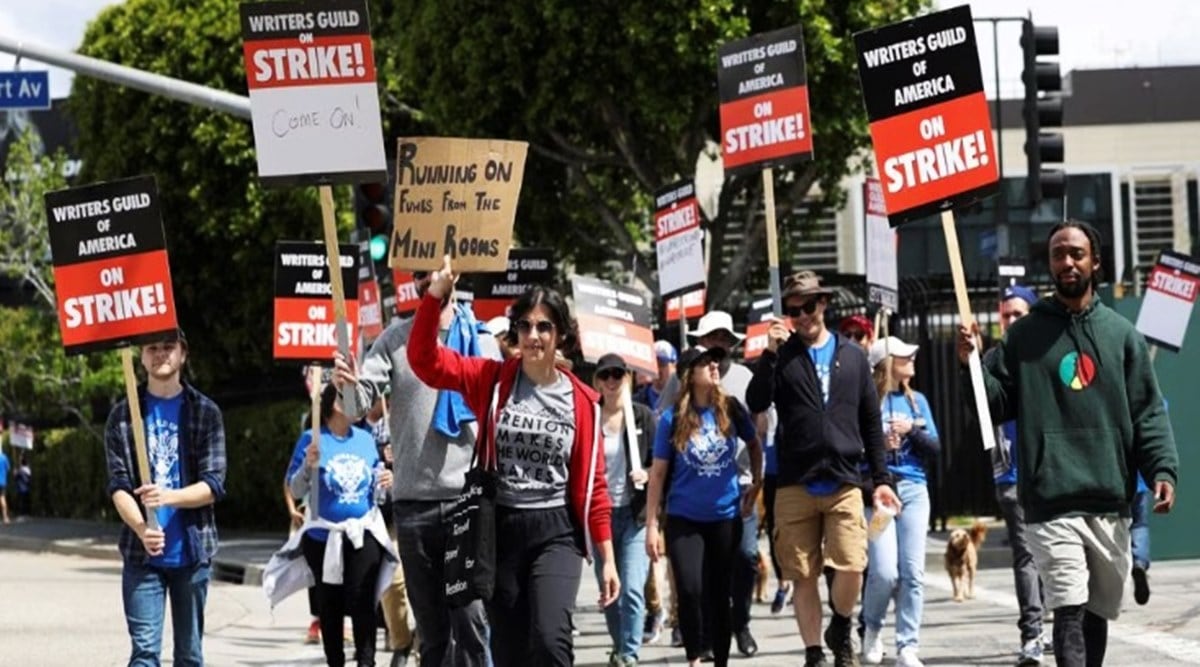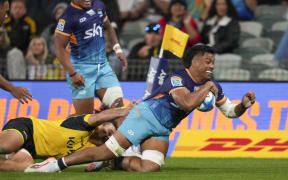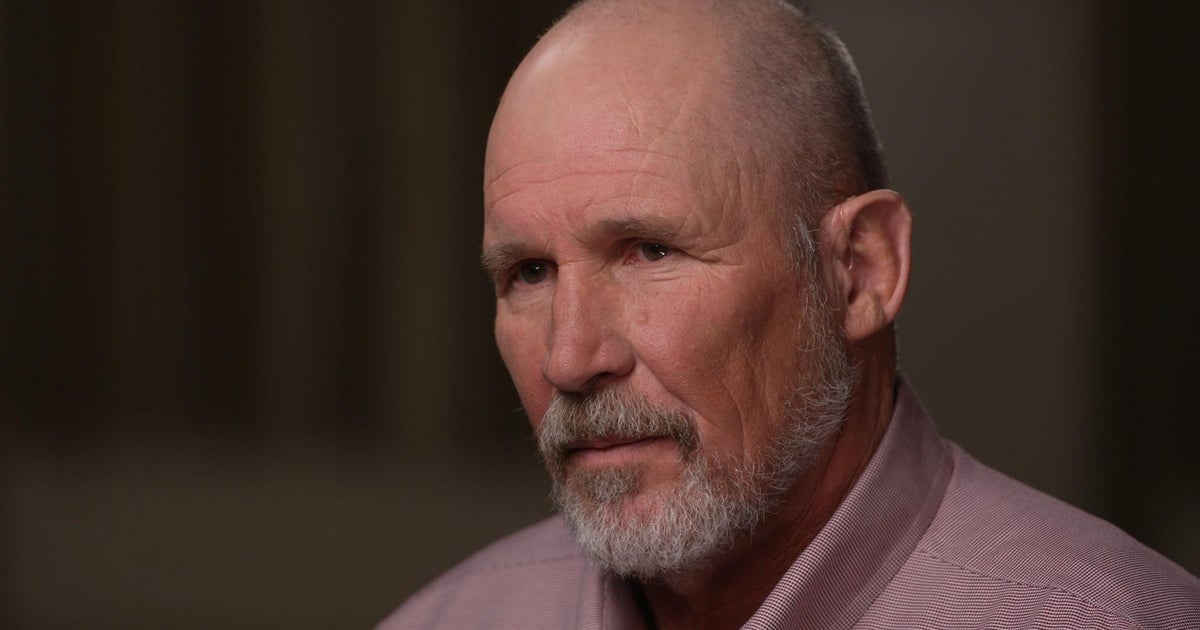Actors And Writers Strike: What It Means For Hollywood's Future

Table of Contents
Key Demands of the Actors and Writers Strikes:
Fair Wages and Residuals in the Streaming Era:
The shift from traditional television models to streaming has dramatically altered the compensation landscape for actors and writers. Traditional television relied on a system of residuals – payments made to actors and writers each time their work aired in reruns or syndication. Streaming platforms, however, often operate on different models, frequently offering upfront payments without the same robust residual structure. This has led to a significant decrease in income for many creatives, particularly those whose work is popular on streaming services.
The core argument revolves around a fairer share of the substantial profits generated by streaming platforms. While streaming services boast millions of subscribers and generate billions in revenue, actors and writers argue they are not receiving a proportional share of this success.
- Lack of transparency in streaming revenue: Studios often cite proprietary data and business models to justify low residual payments.
- Decrease in residuals for actors and writers: Many actors and writers report a drastic reduction in income compared to the traditional television era.
- Demand for a fairer share of streaming profits: Unions are pushing for a more equitable revenue-sharing model that reflects the value of their members' contributions.
The Threat of AI in Creative Work:
The rapid advancement of artificial intelligence (AI) presents a significant threat to the livelihoods of actors and writers. AI-generated scripts and AI-powered deepfakes raise concerns about the potential displacement of human talent. The unions are pushing for safeguards to prevent the unchecked use of AI, which could devalue human creativity and drastically alter the industry landscape.
- Concerns about AI-generated scripts and performances: The unions worry that AI could be used to cheaply replace human writers and actors, undermining their professional roles.
- Demand for safeguards against AI replacing human talent: The unions are advocating for clear regulations and contractual provisions to protect their members from AI-driven job displacement.
- The need for ethical guidelines in the use of AI in the entertainment industry: Discussions surrounding the ethical implications of AI in the creative process are crucial to finding a balance between technological advancement and the protection of human artists.
Working Conditions and Power Dynamics:
The strikes highlight long-standing issues concerning working conditions and the inherent power imbalance between major studios and creative professionals. Actors and writers often face grueling schedules, excessive demands, and inadequate safety measures on set. The unions are striving to address these issues and establish a more equitable power dynamic.
- Demands for improved working conditions: This includes reasonable working hours, appropriate breaks, and safe working environments.
- Stricter safety regulations: The unions are pushing for better enforcement of safety protocols on film and television sets.
- Better health insurance and fair treatment of all workers: This encompasses fair wages, respectful treatment, and protection against exploitation.
Impact of the Strike on Hollywood Production and Beyond:
Production Delays and Economic Fallout:
The actors and writers strike has brought Hollywood production to a near standstill. Numerous film and television projects have been delayed or cancelled, leading to significant economic repercussions. This extends beyond the entertainment industry, impacting related businesses such as catering, transportation, and post-production facilities.
- Cancelled film and TV projects: Countless projects are on hold, causing delays and potential financial losses for studios and production companies.
- Stalled productions: Ongoing productions have been forced to halt, creating uncertainty for cast and crew.
- Economic hardship for crew and support staff: Thousands of workers in related industries are experiencing job losses and financial instability.
- Potential loss of revenue for studios and networks: The strike's prolonged duration translates into significant revenue losses for the entertainment industry giants.
The Shifting Landscape of Entertainment:
The strike could serve as a catalyst for significant changes within the entertainment industry. It might accelerate the adoption of new business models, potentially leading to a re-evaluation of existing contractual arrangements between studios and creative professionals. The strike also presents an opportunity for a renewed focus on fair labor practices and a strengthening of union power.
- Potential changes to streaming contracts: The outcome could lead to renegotiated contracts that better reflect the value of actors and writers' contributions in the streaming era.
- Reassessment of industry practices: The strike forces a critical examination of how the entertainment industry operates, prompting a search for more ethical and sustainable practices.
- Increased focus on fair labor practices: The strike could contribute to a larger movement towards fairer treatment and better working conditions within the entertainment industry.
- Strengthened union bargaining power: A successful outcome could significantly enhance the power of unions to negotiate better terms for their members in the future.
Potential Outcomes and Future of the Strike:
Possible Scenarios and Negotiations:
Several scenarios are possible, ranging from a successful negotiation and resolution to a prolonged stalemate. The willingness of both sides to compromise will largely determine the outcome. Negotiations involve complex considerations, including the definition of "fair wages," the structure of residuals in the streaming environment, and the regulation of AI in creative processes.
- Successful negotiation and resolution: A compromise could result in improved compensation, better working conditions, and safeguards against AI misuse.
- Prolonged strike with potential concessions from both sides: A drawn-out strike may eventually lead to partial concessions from both the unions and the studios.
- A complete breakdown in negotiations and prolonged industry disruption: A failure to reach an agreement could have far-reaching and potentially devastating consequences for the industry.
Long-Term Implications for Hollywood:
The long-term effects of the actors and writers strike could be profound. The outcome will reshape labor practices, compensation models, and the overall structure of the entertainment industry. It could strengthen the position of unions, pushing for fairer treatment of creatives and a more sustainable business model.
- Potential for improved working conditions: A successful outcome could lead to better working conditions and safer environments for actors and writers.
- Adjustments in compensation structures: New models for compensating actors and writers in the streaming era are likely to emerge.
- Stronger unionization in the entertainment industry: The strike might encourage greater unionization within the industry, improving worker protection and bargaining power.
- The long-term impact on the type of content produced: The strike could influence the types of projects produced, potentially shifting towards independent productions or smaller studios.
Conclusion:
The actors and writers strike represents a pivotal moment in Hollywood history, challenging established power dynamics and forcing a critical conversation about fair compensation, working conditions, and the future of creative work in the age of streaming and AI. The outcome of this strike will significantly impact not only the livelihoods of countless professionals but also the very landscape of entertainment for years to come. Staying informed about the developments in the actors and writers strike is crucial for understanding the shifting tides within Hollywood and the implications for the future of film and television. Keep following the news and engage in discussions to ensure fair treatment and sustainable practices within the entertainment industry.

Featured Posts
-
 Pasifika Sipoti A Brief Overview For April 4th
May 02, 2025
Pasifika Sipoti A Brief Overview For April 4th
May 02, 2025 -
 Kshmyrywn Ke Hqwq Jnwby Ayshyae Myn Amn Ky Dmant
May 02, 2025
Kshmyrywn Ke Hqwq Jnwby Ayshyae Myn Amn Ky Dmant
May 02, 2025 -
 Understanding This Country People Places And Perspectives
May 02, 2025
Understanding This Country People Places And Perspectives
May 02, 2025 -
 Ray Epps Sues Fox News For Defamation Analyzing The Jan 6th Allegations
May 02, 2025
Ray Epps Sues Fox News For Defamation Analyzing The Jan 6th Allegations
May 02, 2025 -
 Digital Exclusive Tracking Tulsas Winter Weather With Travis And Stacia
May 02, 2025
Digital Exclusive Tracking Tulsas Winter Weather With Travis And Stacia
May 02, 2025
